Alumni News
Rev. Imani-Sheila Newsome-Camara (STH’87,’88,’12), of Greenwood Memorial United Methodist, in Boston Globe
This story was originally published in The Boston Globe, written by Gal Tziperman Lotan. Click here to view.

When the coronavirus pandemic took hold in the spring, the Rev. Imani-Sheila Newsome Camara felt overwhelmed, filled with worry over how to keep her family safe.
But as a pastor, Newsome Camara could not dwell too long on her personal troubles, no matter how extreme the circumstances. The 200 congregants at Greenwood Memorial United Methodist Church in Dorchester were worried, too, and looked to her for comfort and guidance in their time of need.
“Vulnerability for clergy can sometimes be difficult, because we’re called to stand so tall,” Newsome Camara said. “They’re trained to believe that they can leap tall buildings in a single bound. And when you miss that ledge, it’s going to be painful.”
Her impulse was to pour herself into her ministry, pushing her own fears aside. But with the world feeling more chaotic by the day and anxiety taking a physical toll, she made a concerted effort to slow down and take some time for herself.
“I did preach every Sunday, I did pray,” Newsome Camara said. “But I decided not to do anything heroic. Just sit and absorb how this was impacting me and my community.”
The past nine months have brought upheaval to every aspect of life, and religious leaders have faced immense challenges in charting a course through the pandemic. They have found ways to hold services remotely when gatherings became unsafe. They have faced financial uncertainty as their members had less to give. They have addressed their parishioners’ concerns around the effects of racism, the deaths of Black people at the hands of police, and the presidential election. As COVID-19 deaths climb, so has the emotional toll.
As she returned to a fuller work schedule, Newsome Camara turned to workshops on trauma and emotional well-being. She carved out more time for her family, baked bread, and wrote spiritual reflections and litanies. That has allowed her to recharge and see the challenges her parishioners face with clearer eyes.
“I didn’t pretend the pandemic wasn’t happening, I didn’t pretend that Black Lives Matter wasn’t happening,” she said. “It allowed people to say, ‘It’s OK if you have anxiety or concerns during this time period.’ Yes, you can still believe in God and be afraid.”
Clergy can be front-line responders, said the Rev. Laura E. Everett, executive director of the Massachusetts Council of Churches. In October, the organization put out a public call for lament, asking their communities to acknowledge the difficulties pastors and the communities they serve are facing.
“We know, in this country, there is still unfortunately a stigma around care for our mental well-being,” Everett said. “I think the complexity is often that clergy are in front of congregations, and in many ways set apart from that congregation to lead. And talking about one’s own needs invites a kind of vulnerability that can be hard in this culture.”
So clergy have tried to reset expectations, Everett said. If faith leaders don’t take care of themselves, their ability to care for their congregants may wane at the time of greatest need.
“We want to have candid and honest conversations about the whole of peoples’ lives: our spirits, our bodies, our economic, civil, emotional well-being,” she said. “We believe God cares about all of that, so it’s incredibly important to focus on.”
Everett said she has found a measure of peace in darning clothing, in Friday night family dinners, in kneading bread dough, in being in nature. She has often returned to a hymn about uncertainty: “On Christ, the solid Rock, I stand; All other ground is sinking sand.”
The stress, the Rev. Dieufort Fleurissaint said, had been mounting for a while. Even before the pandemic Fleurissaint, executive pastor at Voice of the Gospel Tabernacle in Mattapan and president of the Haitian Evangelical Pastors Association of New England, saw rapid changes in immigration policies take a toll on the emotional well-being of the people around him.
And the pandemic has only exacerbated those issues, he said. Some congregants have lost their jobs; others work in settings that leave them vulnerable to the virus. Families, especially ones with mixed immigration status, are struggling.
“We are always relying on the promises of God, in helping congregants face difficult situations,” he said. “But pastors are people too.”
“It’s a taboo subject, culturally, people do not want to talk about that. But when it causes so much stresses, at some point, being a pastor that has been trained to deal with it, we understand that prayers are not enough to deal with it. We need professional counseling to deal with it.”
Rabbi Mendy Uminer of Chabad at Chestnut Hill said he has seen many people grapple with uncertainty. In a pandemic, there are so many unanswered questions, and not knowing can be difficult for faithful people, he said.
“But really, in Judaism, faith is not that there is no uncertainty,” he said. “It’s persevering and living through uncertainty and still holding on to your faith.”
The Rev. Jay Williams of Union Church in Boston’s South End said he has encouraged his congregation to pay attention to their own well-being. In September, he preached the story of Deborah from the Hebrew Bible, focusing on the moment she sat at the base of a palm tree to rest.
“Rest is so very hard for us to experience,” Williams told congregants over Zoom. “So much of our reality is so shaped by doing, instead of being. God knows I still struggle to practice what I preach, and that’s why I keep preaching it.”
When life gets hard, as it often does, Williams said he encourages congregants and church leadership alike to extend grace to themselves, to cut themselves some slack. That can mean extending a deadline or pushing back a meeting. It can mean trying to disconnect from emails and spending time with his nieces and nephew, or going for a long run in nature.
Williams said he also tries to remember that hard times are part of the human condition. There is strength to be found in remembering his ancestors, their suffering and their joys, and how they found strength in the communities around them.
“Being in community has reminded me of the power of the people who are walking beside us,” he said.
Amr Elfass, a spokesman for the Islamic Society of Boston Cultural Center in Roxbury, said he and other leaders at the mosque are trying to remind their community that this moment, while extraordinarily difficult, will someday fade to memory.
“We know that this moment will pass, and we know that we can look back and say, we passed this together,” he said.
Lucille E. (MacFarland) Metcalf (STH ’67)
Lucille E. (MacFarland) Metcalf, 90, of Exeter NH, passed away at Exeter Hospital on November 27, 2020.
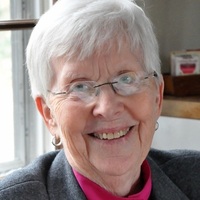 Born in Marblehead MA on March 18, 1930, she was the daughter of the late Edna and Dwight MacFarland of Marblehead. She was a 1948 graduate of Marblehead High School, a 1956 graduate of Gordon College in Boston and Wenham MA, and had a Masters degree in Religious Education from Boston University School of Theology. She worked as a Director of Christian Education in Augusta ME, served as a City Missionary with the Baptist City Mission Society in Boston MA, was the Executive Director of the Greater Lynn Council of Churches, and taught knitting at Charlotte’s Web yard shop in Exeter.
Born in Marblehead MA on March 18, 1930, she was the daughter of the late Edna and Dwight MacFarland of Marblehead. She was a 1948 graduate of Marblehead High School, a 1956 graduate of Gordon College in Boston and Wenham MA, and had a Masters degree in Religious Education from Boston University School of Theology. She worked as a Director of Christian Education in Augusta ME, served as a City Missionary with the Baptist City Mission Society in Boston MA, was the Executive Director of the Greater Lynn Council of Churches, and taught knitting at Charlotte’s Web yard shop in Exeter.
Lucille was a member of Exeter Congregational Church since 1972 and served on their Board of Christian Education, Diaconate, and as Director of the Women’s Fellowship. She was also an avid walker and a long-time member of the Exeter Area Walking Club, having completed 11,000 miles as of 2002 when they stopped recording mileage, but kept walking until her passing.
Lucille was predeceased by her husband Russell C. Metcalf, her sister Shirley E. Breunig, and her stepson Peter B. Metcalf. Surviving members of her family include her sister Barbara Ripley of Rye NH; stepgranddaughters Susan Gardiner and her husband Steven of Georgetown MA, and Sandy Philpott and her husband Herb Philpott of Acton MA; step-great-grandchildren Ryan and Katie Philpott of Acton MA; and numerous nieces, grand-nieces, grand-nephews, and a great-grand-nephew.
At Lucille’s request, there will be no calling hours. A private family ceremony will be held at the Memorial Garden of the Congregational Church in Exeter, where she will be interred. A public memorial will be held at a later time.
This obituary was originally published here, by Stockbridge Funeral Home.
Mapping Christianity in China Workshop: a Global Event
By Daryl Ireland, Research Assistant Professor of Mission
On November 19-21, 2020, the Center for Global Christianity and Mission at Boston University convened a workshop on “Mapping Christianity in China, 1550-1950.” The Center launched the China Historical Christian Database (CHCD) project in 2018 to map where every Christian church, school, hospital, monastery, orphanage, publishing house, and the like were located in China between 1550 and 1950. The project also seeks to identify who worked inside those buildings, both foreigners and Chinese. The goal is to build a tool that can create spatial maps of when and where Christians were located in China, and a resource that can generate social network maps of Christian actors.
The workshop was designed to mark a milestone in the project. The China Historical Christian Database is exiting its proof-of-concept phase (beta version). Before dramatically upscaling, it was important to get input from various stakeholders. The Boston University Center for the Study of Asia (BUCSA) and the Institute on Culture, Religion and World Affairs (CURA) provided the funds that allowed 266 people from twenty-eight countries, from the United States to Vatican City to Malaysia, to attend the virtual event. Scholars, computer scientists, and archivists worked together to lay out a pathway for the CHCD to become transformative for the study of modern China and modern Chinese Christianity. The sessions were recorded and are available at chcdatabase.com.
BUSTH Community 2020 Holiday Artwork and Photography
Boston University School of Theology students, faculty, staff, and alums contributed artwork and photography to our online 2020 Holiday Season gallery. We hope it brings you some joy in these dark times.

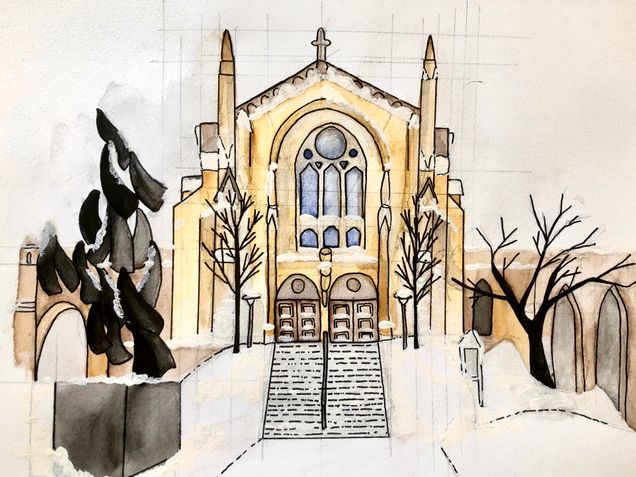
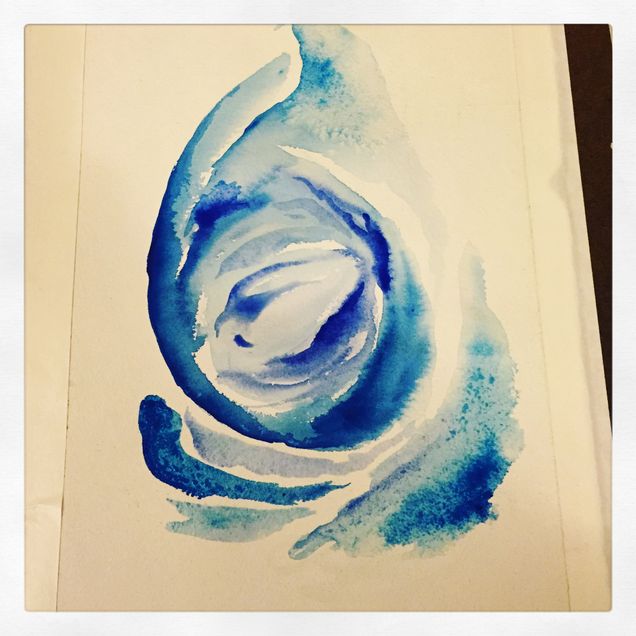


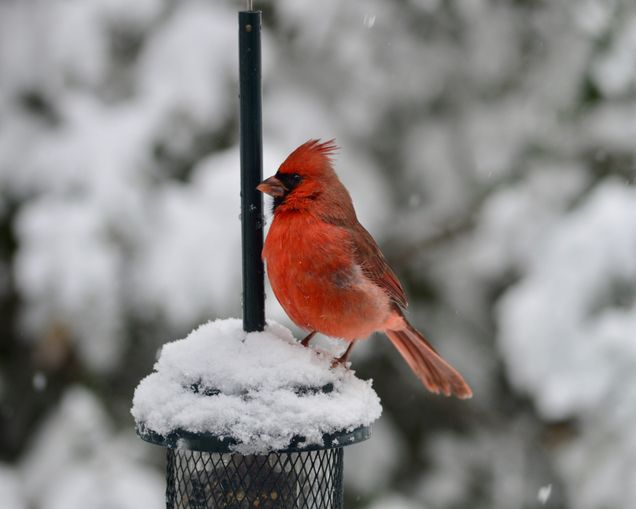


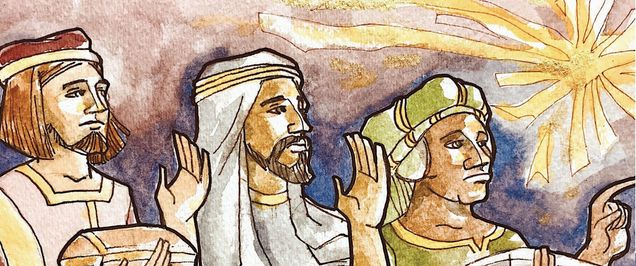

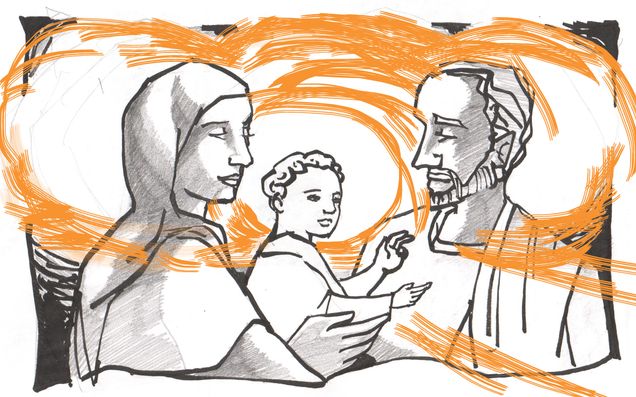
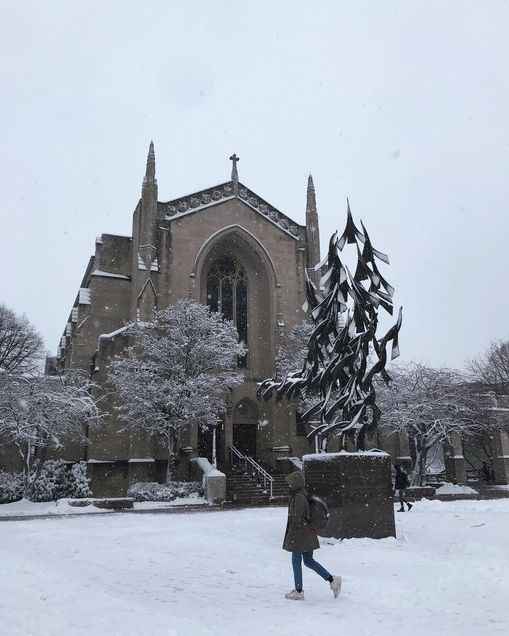



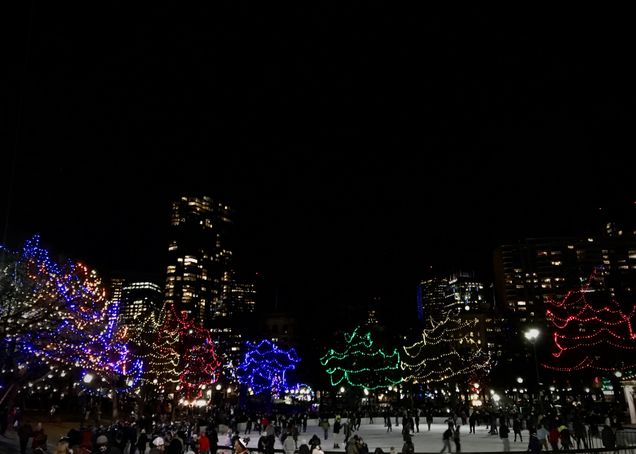
A Word of Thanks from Dean Moore
Monday, November 23, 2020 – I am overwhelmed in this season of Thanksgiving with gratitude for the STH community that I love. In little more than 5 weeks, I will step out of the deanship and into a sabbatical season, followed by retirement. The immanence of departure makes me overflow with gratitude for all of you and also for the new Dean who will arrive on January 1 and will do an absolutely fabulous job in leading the School.
I am grateful for STH students who have year after year been passionate, dedicated to doing good, and compassionate with yourselves and one another. You are people who plan birthday celebrations for one another, even in quarantine, and you reach out when one of you is feeling battered or discouraged. You gather in STHSA and student groups to make good space for one another, and you create new groups when something is missing. You plan powerful Town Halls and events, and find ways to support student needs during these COVID days. In classes, you offer deep-probing questions and comments as you learn from and with one another. I was privileged to hear three of you present papers on Saturday and to read student papers this week. You folks are smart, and you live well in this journey of discovery and shared life.
I am also grateful for faculty and staff. In recent weeks, I have seen you step up to support colleagues who were ill, to support students and colleagues who were struggling, and to celebrate in others’ good news. Many of you are caring for children and vulnerable family members during this pandemic season, and all of you are having to stretch yourselves to develop new ways to teach, build community, provide library services, support students, recruit new students, and build moral and financial support for STH people and programs. The Library has created a dazzling array of new services; several faculty have presented papers and sponsored conferences that were deeply meaningful and timely; and the student-serving offices have created new ways to support students scattered across the world. At the same time, everything is harder, so your powerful classes and services have required untold hours to create. Even as you have adjusted to this small-screen season, you have attended to what is most important, setting priorities and giving your best to support the physical, psychological, and spiritual health of yourselves, your families, and the STH community. Thank you!
We are entering the season formally designated for giving thanks in the US! As with Columbus Day, we have to recognize that the dominant US Thanksgiving story has not done justice to Native Americans – the peoples who lived in this land long before white settlers arrived from Europe. The popularized story has not acknowledged the decimation of Native people that followed as the result of illnesses and domination. On this Thanksgiving, I invite you to be sober and awakened as you remember the hurts of the past and present that have not been acknowledged or justly repaired. I also invite you to give thanks for all you love, for all you hope to love better, and for your own compassion and strength to seek the good in a very difficult time. Happy Thanksgiving!
With overflowing appreciation,
Mary Elizabeth Moore, Dean (she/her/hers)
Rev. Dr. William Bobby McClain (STH’62, ’77)
The following obituary was written by Kathy Gilbert and originally published on November 19, 2020 by United Methodist News. It can be accessed here.
The Rev. William Bobby McClain, the Black theologian and civil rights leader who championed the United Methodist worship book “Songs of Zion,” died after a short illness on Nov. 18. He was 82.
“Bobby, as we called him even in those early years, was articulate, outspoken and radically committed to ridding the world of segregation and discrimination,” said retired United Methodist Bishop Woodie White.
“He went on to become one of Methodism’s greatest preachers and civil rights advocates,” White said.
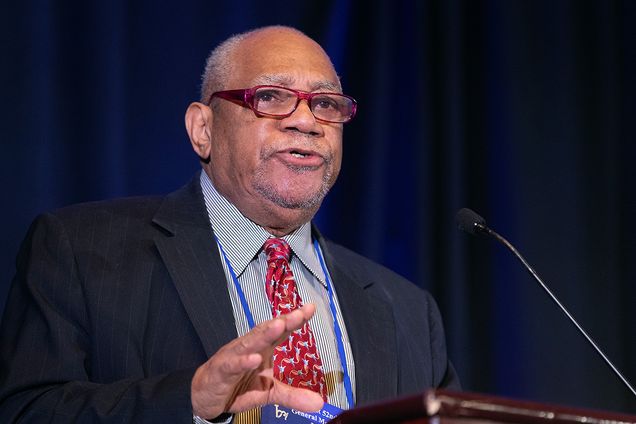
McClain was born in Gadsden, Alabama, on May 19, 1938. As a teenage pastor, he met the Rev. Martin Luther King Jr. in Montgomery.
McClain attended then-Clark College (now Clark-Atlanta), a historically Black college in Atlanta. After completing his seminary degree at United Methodist Boston University School of Theology, he returned to Alabama in 1962 to work with King and to serve as pastor of Haven Chapel Methodist Church in Anniston.
From 1968 to 1978, he served as senior pastor of the historic Union United Methodist Church in Boston. During that same period, he taught at Boston College, Harvard University, Northeastern University and Emerson College. From 2001 to 2003, McClain served as the senior pastor of Philadelphia’s Tindley Temple United Methodist Church, where the Rev. Charles Albert Tindley served as pastor and wrote many of his famous and beloved Gospel songs.
He established and served as the executive director of the Multi-Ethnic Center for Ministry at Drew University, Madison, New Jersey, in 1978. There he wrote “Travelling Light: Christian Perspectives on Pluralism.” He is also the author of “Black People in the Methodist Church: Whither Thou Goest” and with the late Grant Shockley and Karen Collier wrote, “Heritage and Hope: African American Presence in United Methodism.”
In 1999, he was named to the Mary Elizabeth McGehee Joyce Chair in Preaching and Worship at Wesley Theological Seminary. He taught preaching and worship for 34 years, then retired in 2013 and served as a professor emeritus.
As a professor of preaching and worship at Wesley Theological Seminary, he laid the groundwork for “Songs of Zion,” which sold more than 2 million copies and brought the sacred music and worship traditions of the African American culture to the pews of predominantly white denominations. It was published by the United Methodist Publishing House and Abingdon Press in 1980.
At the time, McClain said, “It was a labor of love and an effort to lay our contribution on the altar of the church we all loved so much.”
The Rev. Carlton R. "Sam" Young, editor of The United Methodist Hymnal, also spoke about McClain's contributions.
“Dr. McClain was the guiding force for the widely acclaimed Songs of Zion (1981-1982), and as a consultant to the hymnal revision committee his expertise significantly contributed to the inclusion in The United Methodist Hymnal of 51 spirituals and hymns and songs by African American composers and poets,” Young said.
Bishop LaTrelle Miller Easterling, who leads the Baltimore-Washington Conference, said that through his dynamic teaching, McClain, “helped many young minds understand the necessity of wrestling with Scripture in light of God’s liberative preferential option for the poor.”
“His theological genius and incisive truth-telling led many to understand the harm done by injustice, oppression and hatred,” she said in a tribute to McClain.
The Rev. David McAllister-Wilson, president of Wesley Theological Seminary, said McClain’s students are his legacy and those students will, “Rise up and call him blessed.”
“One of the last of the young leaders of the civil rights movement has passed. What will be the legacy of Dr. William B. McClain? About 2 million biblically grounded, theologically sound, prophetically and pastorally infused sermons have been shaped by the teaching of Dr. McClain,” McAllister-Wilson said.
One of those students is the Rev. C. Anthony Hunt, pastor in the the Baltimore-Washington Conference and a professor.
“The Rev. Dr. William B. McClain was the very first professor I had when I started seminary at Wesley Theological Seminary in 1989,” Hunt said. “That course set the trajectory for my ministry as a pastor, teacher and church executive.”
Hunt also followed in McClain’s footsteps as the fourth executive director of the Multi-Ethnic Center for Ministry at Drew University.
“His prophetic and pastoral zeal, from the pulpit to the classroom, from Alabama to Boston and beyond will be missed, and his legacy will live. Rest well Dr. William McClain,” Hunt said.
McClain was a “history-maker,” said the Rev. Alfred “Fred” T. Day III, retired top executive of the United Methodist Commission on Archives and History.
“He was a giant and his immense influence. … will be felt for generations,” Day said. He said McClain molded the minds of United Methodism’s leading clergy, congregations and members of the academy and was influential as a church historian and homilist.

The Rev. Eric W. Carr Jr., coordinator of the Philadelphia Black Methodists for Church Renewal, extolled McClain as “a founder and giant of BMCR and the progressive movement of people of color particularly within The United Methodist Church. Words cannot express how much he will be missed.” BMCR is the Black caucus of the denomination.
McClain faithfully participated in national meetings of the caucus he helped establish in 1967. He was the keynoter at its 50th anniversary gathering in 2007.
“He was also a sought-after seminary professor and advocate for justice and equality,” Philadelphia Area Bishop Peggy Johnson wrote in a tribute. “The Eastern Pennsylvania Conference was blessed to have Dr. Bobby McClain serve as the senior pastor of Tindley Temple a number of years ago.”
“Just a few weeks ago, he was featured in the Council of Bishops’ webinar on Dismantling Racism, and he called the church to keep pressing forward in the struggle. The United Methodist Church has lost a prophet among us and we grieve his passing. We pray for his wife, Jo Ann, and his family at this time. May we find comfort in the hope of resurrection that Dr. McClain lived and proclaimed.”
Bishop White said the church was already mourning the deaths of other civil rights giants this year.
“Now, we mourn him, much too soon. I lost a lifelong friend and Methodism has lost a greater leader.”
McClain is survived by his wife, Jo Ann McClain, and two sons, William Bobby McClain Jr. and David Wilson McClain. Funeral arrangements are pending.
Mr. H. Allen Larsen (CAS ’48, STH ’52)
 H. Allen Larsen of Lakeway, Texas, died on March 11, 2020 at the age of 95 years. Allen was born 10/08/1924 in Brookline Massachusetts.
H. Allen Larsen of Lakeway, Texas, died on March 11, 2020 at the age of 95 years. Allen was born 10/08/1924 in Brookline Massachusetts.
Allen loved to travel, read, and play golf. During World War II, Allen joined the Air Force and was dispatched to China to serve with the Flying Tigers in the China Theater. From 1942 until the end of the war, he photographed life on the base and in the surrounding countryside and nearby cities, including Kunming, Hangchow and Shanghai, where he was stationed.
After the war, Allen began his professional life with the United Way in Boston, Massachusetts. During his thirty-five year career, he served in Wilkes-Barre, PA, Houston, TX, Baltimore and Central Maryland, New York City and the tristate area. Following his retirement, Allen returned to his beloved Texas, where he and his wife, Margret, settled in Austin. They traveled around the United States and Canada and around the world. During several visits to China, they visited Beijing, The Great Wall and Shanghai. In 2015, Allen was an honored guest during the commemoration of the 70th anniversary of the liberation of China in Beijing.
Allen authored two books, one about his family life and the other about his experience in China as a Flying Tiger. Allen's positive outlook, kindness and generosity led to his having may friends with whom he kept in touch throughout his life. He always remarked that he was blessed to have to have lived such a remarkable life with so many adventures and knowing so many wonderful people. Allen's wife, his children and grandchildren enjoyed his stories, his gentlemanly ways and of course his love.
Allen is survived by his loving wife of 41 years, Margaret Larsen; daughter, Leslie Gottert (Peter) of Baltimore, Maryland; daughter, Kristen Larsen of Toms River, New Jersey; son, Keith Larsen (Terri) of Baltimore, Maryland; son, Russell Hartman of Austin, Texas; 5 grandchildren; and 7 great-grandchildren.
He is preceded in death by his son, Laurence Larsen, and his parents.
Services will be held May 21st at 11AM at Emmaus Catholic Church. Emmaus Catholic Church is located at 1718 Lohmans Crossing Rd, Lakeway, TX 78734.
This obituary was originally published here, by DignityMemorial.com.
Reverend James E. Hart (CAS ’61, STH ’63)
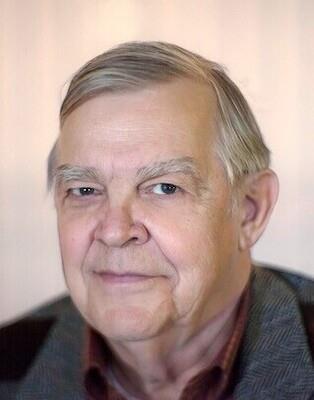 James Everett Hart died at his home in Minneapolis of complications related to pulmonary fibrosis on Oct. 23. Because of his deep knowledge of music, the visual arts, philosophy, literature and more, one of his students at Osher Lifelong Learning Institute recently called him, "A Renaissance Man." His friends and family agree. He was 81.
James Everett Hart died at his home in Minneapolis of complications related to pulmonary fibrosis on Oct. 23. Because of his deep knowledge of music, the visual arts, philosophy, literature and more, one of his students at Osher Lifelong Learning Institute recently called him, "A Renaissance Man." His friends and family agree. He was 81.
Jim was born in Perry, Iowa, to Everett and Wadena Hart, graduated from Perry High School and attended Drake University in Des Moines. He moved to Boston in 1959 and studied at Boston University where he received his bachelor's and master's degrees. Although he majored in music, especially pipe organ performance, he decided after graduation he didn't want to have a primary job in music. Instead he preferred to have it as an avocation and it remained important throughout his life. One of his part time jobs while attending university was at a high-end interior design firm where he learned about fine fabrics and wallpapers, skills he put to use in his later homes.
From Boston he moved to Cedar Rapids, IA, and worked for Xerox, where he received an award for a sales innovation. Also, while there, he was active in Vietnam War protests. He moved to Minneapolis in 1970 and worked for courier companies "driving truck," as he called it. He served as Music Director at the First Universalist Church of Minneapolis for a number of years where he created several programs such as an adaptation of Walt Whitman's "When Lilacs Last in the Dooryard Bloom'd," for four readers and music from a Beethoven piano sonata.
When he was 44 years old, he decided to become an attorney and received his law degree from Hamline University, St. Paul, MN. He joined a small law firm working for justice in Workers' Compensation cases. After retiring from active practice at 58, he continued to consult on legal matters.
In 1979 Jim co-founded The Gilbert and Sullivan Very Light Opera Company in Minneapolis and was its music director for many years. A highlight of the early years was a production of Gilbert and Sullivan's "Trial by Jury" for the Minnesota Bar Association. They raised the roof.
From 1988 - 1994, Jim played four-hand piano with his sister Nancy. They studied for a week every summer at a "Four-hand Fest" taught by the international piano duo of Weekly and Arganbright in La Crosse, WI, and later in New Albany, IN. Jim and Nancy gave several recitals in Minneapolis and Perry, IA. Jim continued with other partners for several years after that.
In recent years, Jim taught classes for Osher Lifelong Learning Institute at locations around the Twin Cities on subjects such as Handel's "Messiah," Early music and Beethoven's music. He had an enthusiastic following of students there and found it personally rewarding.
Jim loved art and music and was happy to travel for them. Trips abroad included multiple stays in Vienna and Florence where he rented apartments and invited friends and family to join him. His other interests included: photography, genealogy, wood-working, gourmet cooking and play reading.
Jim was a loving father and is survived by his son, James Charles Hart, Minneapolis; also his sister Nancy Hart Newcomer, Fountain Hills, AZ; and loving partner, Brenda Graves, Sauk Rapids, MN. Memorial service to be held at a later date. Donations may be sent to the ACLU, Osher Lifelong Learning Institute's OLLI Scholars Program Fund and The Pulmonary Fibrosis Foundation.
This obituary was originally published here, by Legacy.com.
Rev. William W. “Bill” Tucker (STH ’56)
Rev. William W. “Bill” Tucker SHREWSBURY - Rev. William “Bill” Ward Tucker died on November 4, 2020 in the Shrewsbury Nursing Home in Shrewsbury, Massachusetts following a brief illness.
Bill was born in Lorain, Ohio in 1930 to parents Sara and David Tucker. He served in the U.S. Navy during the Korean War, where he was stationed for a time in the Mediterranean. After graduating from Baldwin Wallace College in Ohio he went on to Boston University School of Theology, where he earned his Master’s. As an ordained minister in the United Methodist and United Church of Christ for over 40 years, Bill was the lead minister in churches in Ohio, New Hampshire, and Massachusetts. He also served on numerous committees and commissions including the Eccumenical Council of the Massachusetts Conference. He was active in the Civil Rights movement, including the March on Washington. Bill was an avid reader, devotee of classical music, passionate about quantum physics and String Theory, and enjoyed fishing. After retiring in Massachusetts, he served as interim minister in Harwich Port, Craigville, and Dennis.
He was a devoted and loving husband to Ann Bailey Tucker for 59 years, who predeceased him in 2014. He is also predeceased by his sister, Eloise Atkin, in 2012. Rev. Tucker is survived by his loving children, Robin Tucker Gahm, Beth Thompson-Tucker, David Tucker, and Mark Tucker, as well as grandchildren, Justin Thompson-Tucker, Alyssa Thompson-Tucker, Kyle Gahm, Ashley Tucker, Chris Gahm, Jenna Tucker, Taylor Gahm, Max Tucker, and Mason Tucker, his sister-in-law Linda Leinbach, and brothers-in-law Tom Leinbach and Roger Atkin, a number of nieces and nephews and other family members.
A graveside service for the immediate family is planned for this fall and a memorial service is planned for next spring. His life and ministry made a positive contribution to God’s purpose. Faith offers a new life which Christ brings.
In lieu of flowers, contributions may be made to Church World Service or Habitat for Humanity.
Notes of comfort may be sent to the Tucker family at www.MorrisOConnor.com
This obituary was originally posted here, by Cape Cod Times.
BUSTH Announces Faculty Publications for November 2020
The School of Theology is pleased to announce the following faculty publications for the month of November 2020:
-
-
The Saints of Santa Ana: Faith and Ethnicity in a Mexican Majority City. Oxford University Press, 2020.
-
Jonathan was also selected by the New-York Historical Society to be a Public Fellow in Religion and the American West. This fellowship is funded by the Luce Foundation to support emerging scholars in Religious Studies and History whose work complements that of the forthcoming N-YHS exhibit Acts of Faith: Religion and the American West.
-
-
-
“Ecomimetic Interpretation: Ascertainment, Identification, and Dialogue in Matthew 6:25–34,” Biblical Interpretation (2020) 1-23.
-
“Women, Wells, and Springs: Water Rights and Hagar’s Tribulations,” Biblical Theology Bulletin 50:4 (2020), 191–199.
-
-
-
Entries: Isa.9:2-7, Isa.62:6-12, 2 Sam 7:1-11. Westminster John Knox Press @2020.
-
-
-
“Sacred, Revolutionary Teaching: Encountering Sacred Difference and Honest Hope,” Religious Education, 2020, 115:3, 291-303.
-
Lucinda Mosher, Axel Takacs, Or Rose, and Mary Elizabeth Moore, eds. Deep Understanding for Divisive Times: Essays Marking a Decade of the Journal of Interreligious Studies. Newton Centre, MA: Interreligious Studies Press, 2020. STH faculty chapters:
-
Luis Menéndez-Antuña, “The Ethical Turn in Biblical Studies: Its Relevance for the Classroom as an Interreligious Space,”114-119.
-
Judith Oleson, “Interfaith Place-Making in the Academic Landscape: Religion and Conflict Transformation,” 133-139.
-
Robert R. Stains, Jr., “Brave Listening and Passionate Speaking: Engaging Strong Emotion in Interreligious Dialogue,” 177-181.
-
Wendy von Courter, “Getting Out of Our Own Way: Maximizing Our Collective Power in Service to Justice,” 182-188.
-
Mary Elizabeth Moore, Afterword, “Opening Borders: Stretching Human Compassion,” 189-197.
-
-
-
-
“Constructive Biblical Hermeneutics: History and its Afterlife,” in What is Constructive Theology? Histories, Methodologies, and Perspectives (Bloomsbury, 2020). https://www.bloomsbury.com/us/what-is-constructive-theology-9780567695154/.
-
-
-
Voices of Earth and Air, Volume III: Works for Chorus, 2020, Vox Futura: Andrew Shenton, Conductor. https://www.navonarecords.com/catalog/nv6299/.
-
-
-
Shively Smith, “Brief Reflections on the “Head, Heart, and Hand” Legacy of Dr. Clarice J. Martin through the Social-Conscious Literary Voice of Anna Julia Cooper,” Recovering Female Interpreters of the Bible. A Panel Discussion at the SBL Annual Meeting 2019 in San Diego, lectio difficilior: European Electronic Journal for Feminist Exegesis 1/2020 (http://www.lectio.unibe.ch/20_1/Shively_Smith.html) [peer reviewed]
-
Ali, Kecia, Julia Watts Belser, Grace Y. Kao, and Shively T. J. Smith. "Full Catastrophe Mentoring: A Conversation." Journal of Feminist Studies in Religion 36, no. 2 (2020): 107-16. Accessed October 12, 2020. doi:10.2979/jfemistudreli.36.2.08.
-
“Thurman-eutics: Howard Thurman’s Clothesline for the Interpretation of the Life of the Mind and Journey of the Spirit.” In Greg Ellison and Luther Smith, eds. Anchored in the Current: The Eternal Wisdom of Howard Thurman in a Changing World. Louisville: Westminster John Knox, 2020, 71-83.
-
-
-
The Pentecostal Hypothesis: Christ Talks, They Decide. Cascade Books, 2020
-
The Split Economy: Saint Paul Goes to Wall Street. SUNY Press, 2020
-
African Pentecostalism and World Christianity: Essays in Honor of J. Kwabena Asamoah-Gyadu. Ed. Nimi Wariboko and Adeshina Afolayan. Pickwick Publications, 2020
-
The Philosophy of Nimi Wariboko: Social Ethics, Economy, and Religion. Ed. Toyin Falola. Carolina Academic Press, 2020.
-
Endorsement by Nimi Wariboko: An Amos Yong Reader: The Pentecostal Spirit: “In the days when mainstream theologians treated Pentecostalism with disdain, Yong’s scholarship gave birth to twins — systematized pentecostal theology and sophistication. In this scholarship pentecostal thinkers find their most intimate voice, and the global academy witnesses a splendid realization of the potentials of pentecostal theology. This book is a concrete evidence of all these.”
-
Essays:
-
Nimi Wariboko, “Robin W. G. Horton (1932-2019): His Life and Work,” Africa: Journal of the International African Institute, Vol 90: 4 (August 1920): 822-830.
-
Nimi Wariboko, “Whose Face is on the Coin? The Split Economy and Political Theology.” Political Theology Network, July 23, 2020. https://politicaltheology.com/whose-face-is-on-the-coin-the-spliteconomy-and-political-theology/.
-
Nimi Wariboko, “Between Evangelicals and Trump: Redemption Through Sin,” Political Theology Network, November 5, 2020. https://politicaltheology.com/between-evangelicals-and-trumpredemption-through-sin/.
-
-
